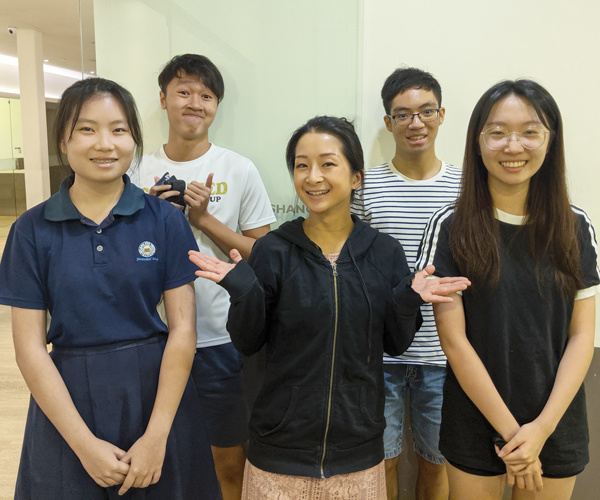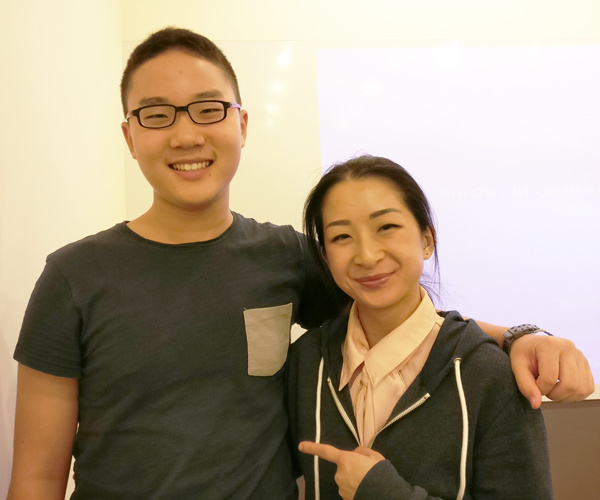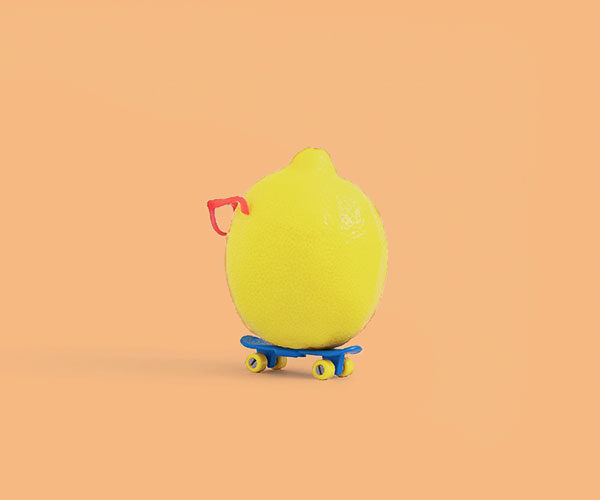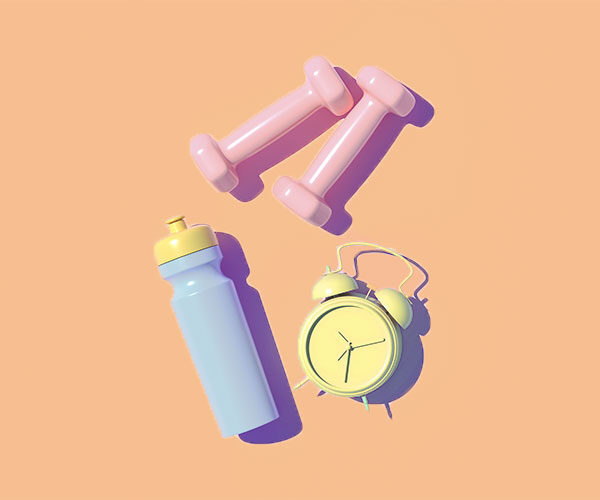
When the topic of a typical Singaporean student’s most important years in their academic journey is brought up, many naturally gravitate towards the PSLE, O-Level and A-Level examinations.
While these major exams are undoubtedly some of the most momentous events in a student’s educational experience, many fail to realise that the lower academic levels, specifically Secondary 1 and 2, serve as formative years for students to:
1) Explore a different scholastic experience
2) Adapt to the more advanced curriculum by devising a learning method that best suits them
3) Build up a repertoire of skills, knowledge and techniques which critical for navigating the entire passage of secondary school
Because of this trifecta of objectives, the lower secondary years may be confusing and challenging to grasp. Ms Deborah Choi, who has personally guided multiple batches of students in English and IB LangArts at The Learning Lab during their lower secondary years, is all too familiar with the pressures they face.
From her 6 years of teaching the secondary school levels and putting herself in her students’ shoes, Ms Choi has 7 things she would like to share with all Secondary 1 and 2 students to help them stay one step ahead. Here is her advice:
1. Think of Secondary 1 and 2 as a buffet
I understand how many have come to conceive of the notion of Secondary 1 and 2 being the proverbial academic “honeymoon period”.
By the time students have earned the right to join the ranks of fellow secondary school students, they’re battle-worn and weary from the agony of the PSLE without the looming threat of major exams around the corner.
Many Secondary 1 students are overwhelmed with settling into their new schools with their new uniforms, new CCAs, making new friends and trying to come to grips with handling more than double the number of subjects than they are used to. It’s easy to see why final year exams (or any vaguely formal mode of assessment) isn’t really on their minds during those years.
In Secondary 2, students may start getting comfortable as they feel well settled into their schools with the O-Levels or the A-Levels still quite a ways to go. Any apprehension from entering a new scholastic environment has now faded away and they’re beginning to come into their own. Of course it’s natural to want to put academic pursuits on the back-burner.
Having had the privilege of graduating batches of secondary school students, I wish to emphasize that the lower secondary school years are important, but perhaps not in the way that involves gearing up for the O-Levels right at the get-go. While I maintain the mindset that a PSLE-like laser focus on scores may not be the best approach for Secondary 1 and 2, I hold the conviction that the lower secondary years are a good time to evaluate strengths and weaknesses in subjects, specific topics or study methods.
If you’re lucky and are just good at everything, consider Secondary 1 and 2 as a buffet of subjects where you can explore your interests and think about what you might want to deepen your knowledge in!
Instead of trying to cram for an exam that’s just on the horizon, the lower secondary years lead down a much longer and more yearning educational path. The subjects you select at the end of Secondary 2 factor into the range of subjects that you would be allowed to choose from in Junior College or Polytechnic, which may affect college majors… and so on… (not intended to incite panic, although some degree of concern might be prudent).
2. Expectations are higher in secondary school
As students have often been told, expectations are different in Secondary school, starting from the types and styles of questions asked across every subject.
English essays tend to be more situated in the real world, a sharp deviation from solely personal recounts of returning a scruffy wallet bursting with bills, helping a doddering old lady across the street or witnessing a car accident at the intersection of a busy street on a rainy day.
In an optimistic attempt to stave off the inevitable last-minute “oh-my-god-I-know-nothing” panic that every graduating student experiences, I incorporate a weekly round-up of current events during lighter curriculum weeks. These round-ups include asking students for their opinion on recent events, and how those news articles are relevant to their lives.
I also ask them to think about what their parents might say, or their older relatives, or even how their friends might react. In addition, I encourage students to take advantage of their daily observations or conversations with their family members and friends to inform them of what the average Singaporean might think.
A recent example: We analyzed a passage examining dual language immersion, and I asked them what they think the programme may look like if it was implemented in a Singaporean school.
With the most recent surge in reporting on racially-charged events, I asked them if they could draw parallels between those incidents and other articles we might have covered before. No issue is off the table in my classes. We talk about things frankly and wholeheartedly, using personal experiences, where relevant, to substantiate our discussions.
3. Keep building on your knowledge
When students (rarely) and parents (mainly) ask me if they should start their O-Level, IP or IB preparations from Secondary 1, I always assure them that I don’t feel that it is necessary to do so.
Well, at least not in the same way that preparations in the final hurdle at Secondary 4 may appear. I don’t recommend memorising topics or sprinting to the nearest bookstore to stock up on practice papers or the 10-year series.
However, I do think that lower secondary students can start preparing for the O-Level in terms of a paradigm shift in how to approach questions and understanding the examiner's expectations.
For example, making clear connections between your response and the question is key to getting that elusive last mark. Additionally, it'd be worth disabusing yourself of the notion that you can get by without knowing anything about current events or the latest non-celebrity hot-button topics.
It takes time and energy to build sufficient content knowledge, and even more time and energy for all these topics to coalesce into a coherent narrative. As such, you can start preparing for the O-Levels or the IP and IB equivalent by reading the news and also developing a cogent and supported opinion on current events around the world and in Singapore.
4. Learn in bite-sized pieces
Even though the subject of English does not exactly have predetermined “topics” like the sciences and the humanities, we do have question types that are novel to secondary school.
Although I take a tailored approach in helping my students overcome any gaps in knowledge, I have found that for the most part, reframing my students’ academic struggles to show them how close they are to succeeding helps to encourage and motivate them to try harder.
The summary writing component for English may seem intimidating to lower secondary students simply because they’ve never seen something like that before. However, once students understand that it is essentially an extremely long, 8-mark comprehension question, they feel less put off by it.
Often, I see students struggling with developing sufficient and relevant content because they find articles and news reports mundane. I totally understand because I can relate to how exhausting it is to wade through mounds of articles, especially if it’s a political piece that does not interest them.
Instead of telling them to pick up a newspaper, I often recommend consuming the news or other current affairs in bite-sized pieces, leaning into the way teenagers consume media these days. For instance, I will suggest to my students to follow news sources’ Instagram accounts or watch YouTube videos or short video snippets by CNA to develop common knowledge.
To ensure that they remember what they’ve watched, I always encourage my students to bring up the news at the dinner table to seek their parents’ opinions on current events. I often tell students that getting parents and siblings to discuss the news with them is a great way of circumventing the inexorable awkward questions about academic progress at Chinese New Year gatherings.
The Learning Lab is now at locations. Find a location that suits your needs.
If you have any questions about our range of programmes or class schedules, you may contact us at 6733 8711 or drop us an email at enquiry@thelearninglab.com.sg.
5. Take things slow but be consistent
Unlike the proverbial uphill sprint on the slopes of icy Everest in a snowstorm that often characterizes the agony of the lead-up to the PSLE, the O-Level is more of a half-marathon up a similarly challenging terrain.
Try not to think of tests and assessments like a game, where you must get the most points. Of course, it’d be naive to deny the relative importance of grades, but thinking of them as the end goal isn't enough.
Rather, I think it might be more helpful to think of exams or tests as a way to diagnose gaps in knowledge and identify areas of weakness to work on.
Instead of handing over the entire exam paper for me to review and expecting a cure for their academic ailments, I always tell my students to flag questions they don’t know how to do, so that they can give me targeted feedback and from there, I can help my students spot patterns in the errors they tend to make.
I want my students to come to consultations prepared with questions they have given some consideration to. None of this blind “Help me! I don't know how to do!”. Meet me halfway. Tell me how to teach you and what you need me to do. What question types do you tend to keep making errors in? What sections do you have the most trouble with? This self-reflection can serve as helpful information for teachers to help students improve.
6. Don’t fret about plotting your future
That’s too much pressure for anyone, much less a teenager, to put upon themselves.
First, students won’t really know what kind of jobs will be out there in the future. To put that into perspective, there were no social media related jobs when I was in secondary school.
Being a “YouTuber”, an “influencer” or a “social media manager” wasn’t a thing because those online platforms did not even exist — much less gain traction — until just recently. In 2012, when an ex-classmate mentioned getting an offer to be the “social media manager” for one of the major telcos in Singapore, I thought it was some kind of creative scam.
In all seriousness, this example serves to support my opinion that there is little real advantage to being too laser-focused on some big lofty goal. Of course, that’s not to say that having a goal is bad. If you know that you want to be a rocket surgeon-scientist then by all means, pursue that dream with every ounce of your being.
However, I feel that being too focused on a goal may make one prone to missing out on other possible opportunities. The drawback to chasing a dream is that you may not be willing to deviate from that path for fear of feeling and/or looking like a failure.
Instead, in a memorable convocation speech to a graduating class of University of Western Australia university students, comedian Tim Minchin advocates (as do I), “the passionate dedication to the pursuit of short-term goals”, where you work hard and take pride in what’s before you while remaining open to the next worthy pursuit, whenever that may show up.
Personally, I had never planned on teaching as a career, even though I had been told for years that I have always had a knack for explaining relatively complex things clearly and simply. Instead, I had my sights set on research. However, in a desperate attempt to fund my research dreams, I gave teaching assistantship and private tuition a go. Realizing that meeting my students became the highlight of each week allowed me to discover how much I love teaching and sharing knowledge .
7. Enjoy the ride and pursue what you enjoy
I had such a great time during my lower secondary school years, making friends and really enjoying the curriculum without the pressure of a major exam hanging over my head.
I am definitely lucky to have had such amazing teachers who engaged us in the form of playwriting, mock court, and song-writing. I am especially grateful for the teachers who took every single one of my questions seriously, and never once mocked me for my ridiculous or cringe-worthy ideas.
The one thing that I wish I had done differently didn’t strictly occur during those golden days, rather, right at the end, when we were asked to choose our subjects for upper secondary. I wish I had persisted in choosing the subjects I really loved, and not what my 14-year old mind had thought would give me the “best opportunities” and “a bright future” . Fearing failure, I often picked the safer route, not one that I actually wanted. One major regret I have is choosing to continue on the tried-and-true O-Level path instead of accepting the invitation to be part of the pioneer IP batch.
Another academic regret I have is more relatable to my audience. I desperately wanted to read triple humanities, feeling torn over having to choose among learning about rock formations, the way we as a species repeat our mistakes with reckless abandon, why which country fought with which over what (again?!), and hurriedly whispered declarations of love between the youths of two warring families.
The option of triple humanities wasn’t offered, and I suppose I could have pushed a lot harder for the opportunity, but somehow, 2003 me thought that it would be more practical to read triple sciences to facilitate my pursuit of being a researcher. I was further motivated when teachers and my parents unanimously gave well-meaning and extensive warnings about the perils of seeking the underappreciated life of a humanities scholar.
I’m ashamed to admit that it was ultimately the fear of the unknown and worrying that my terrifyingly inconsistent History grades would spell my doom that caused me to turn away from this pursuit. While I still pulled through in the end (with many tears and headaches), I could have avoided a miserable 2 years of deciphering the hieroglyphics of mathematical notations and lots of chemical burns had I been more resolute with sticking to my original plan.
I also wish I had slacked off less during PE, perhaps expending my persuasive skills on more worthy pursuits that did not involve trying to convince my PE teacher why I was yet again unfit for any form of physical activity. For my current students who have witnessed my struggles to lift chairs… yeah... now you know why.
My advice for students starting out on their secondary school adventure is to really relish those days by exploring as much as you can in this journey of self-discovery. Never in my 10 long years of government-mandated education have I ever had as much fun as I did in lower secondary. The curriculum is broad enough such that there is certainly something for everyone, while being challenging enough to maintain interest.
My secondary school teachers were trusted mentors who cheered my successes and counselled me through my mistakes. The luxury of such a spread of subject options coupled with a relatively long run-up to a national exam is unique to these years.
At the risk of sounding cliched, the secondary school experience can be as rich as your investment in it, and how willing you are to deviate from the beaten path (within reason!).
I was by no means a consistently dedicated student who made a habit of receiving academic prizes, nor was I ever a sporting hero (please refer to the comment on skipping PE). I was far from the belle of the cohort, nor the life of any social gathering.
Despite being mousy and generally forgotten, I found much comfort in my two best friends with whom I am still close to, always choosing them over any fictional chance for popularity. Refusing to learn from the social consequences of being too outspoken, I also brazenly (but respectfully) asked my teachers lots of questions and aired my views.
Learning to see my teachers as human beings who weren’t all “out to get us” with trick questions and a petty adherence to rules made me more willing to engage with them, and in turn, I managed to get quite a lot out of being a student.
Staying One Step Ahead in the Secondary School Journey
We believe that the sooner and faster students comfortably assimilate into the secondary school regime and expectations of secondary school life, the easier it is for them to thrive in this new academic journey.
The Learning Lab is now at locations. Find a location that suits your needs.
If you have any questions about our range of programmes or class schedules, you may fill in the form below or contact us at 6733 8711 or enquiry@thelearninglab.com.sg.














